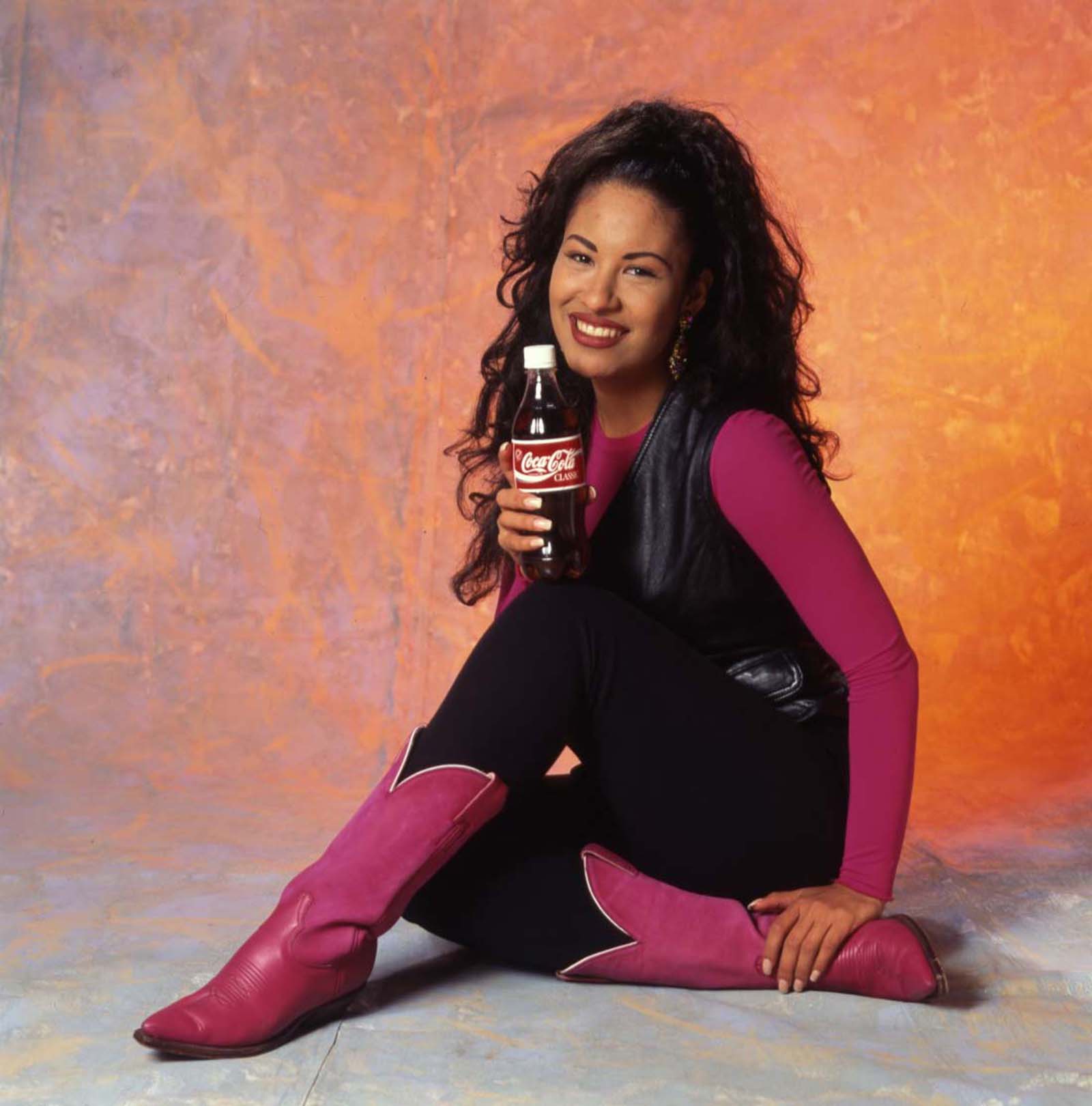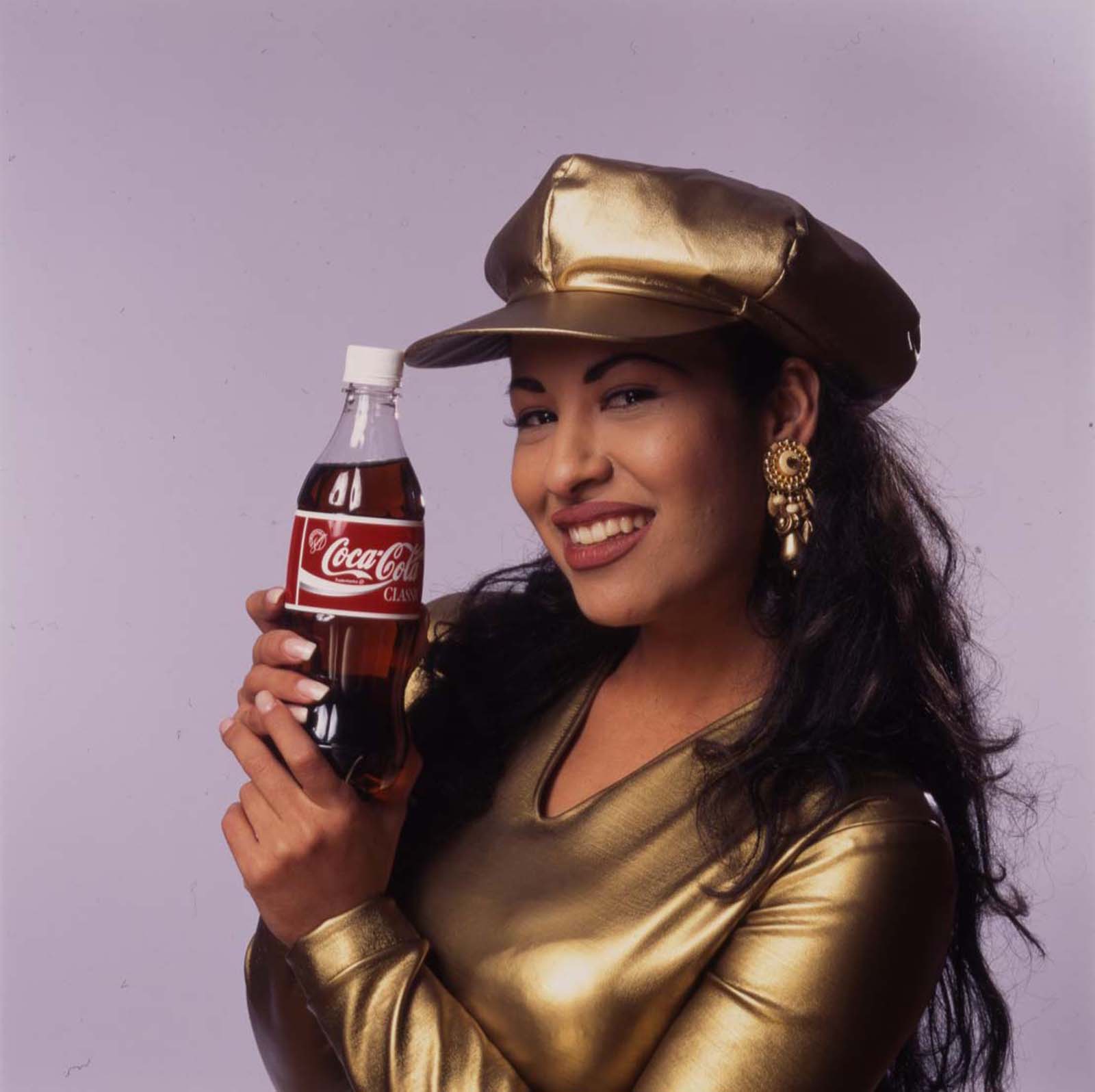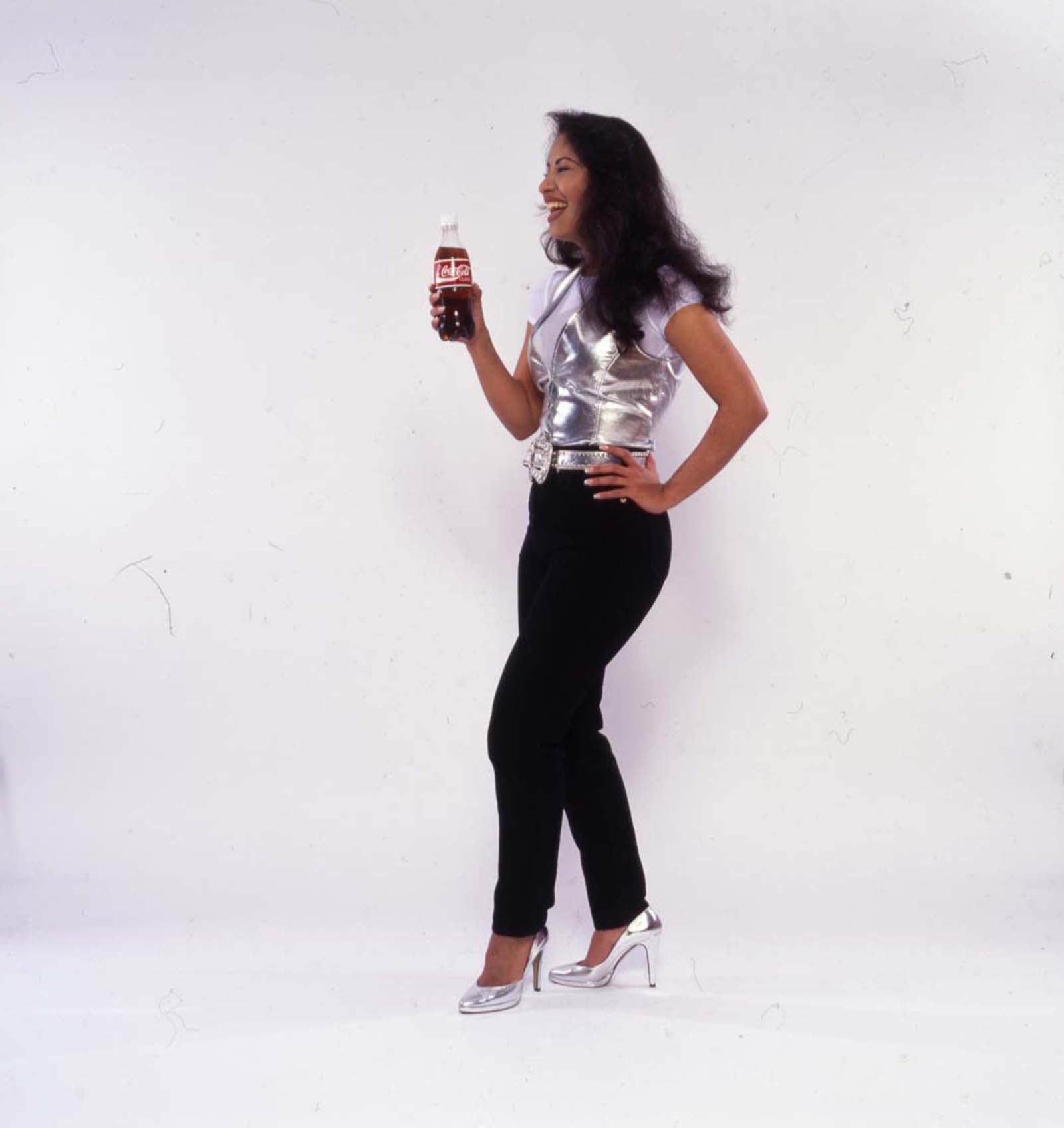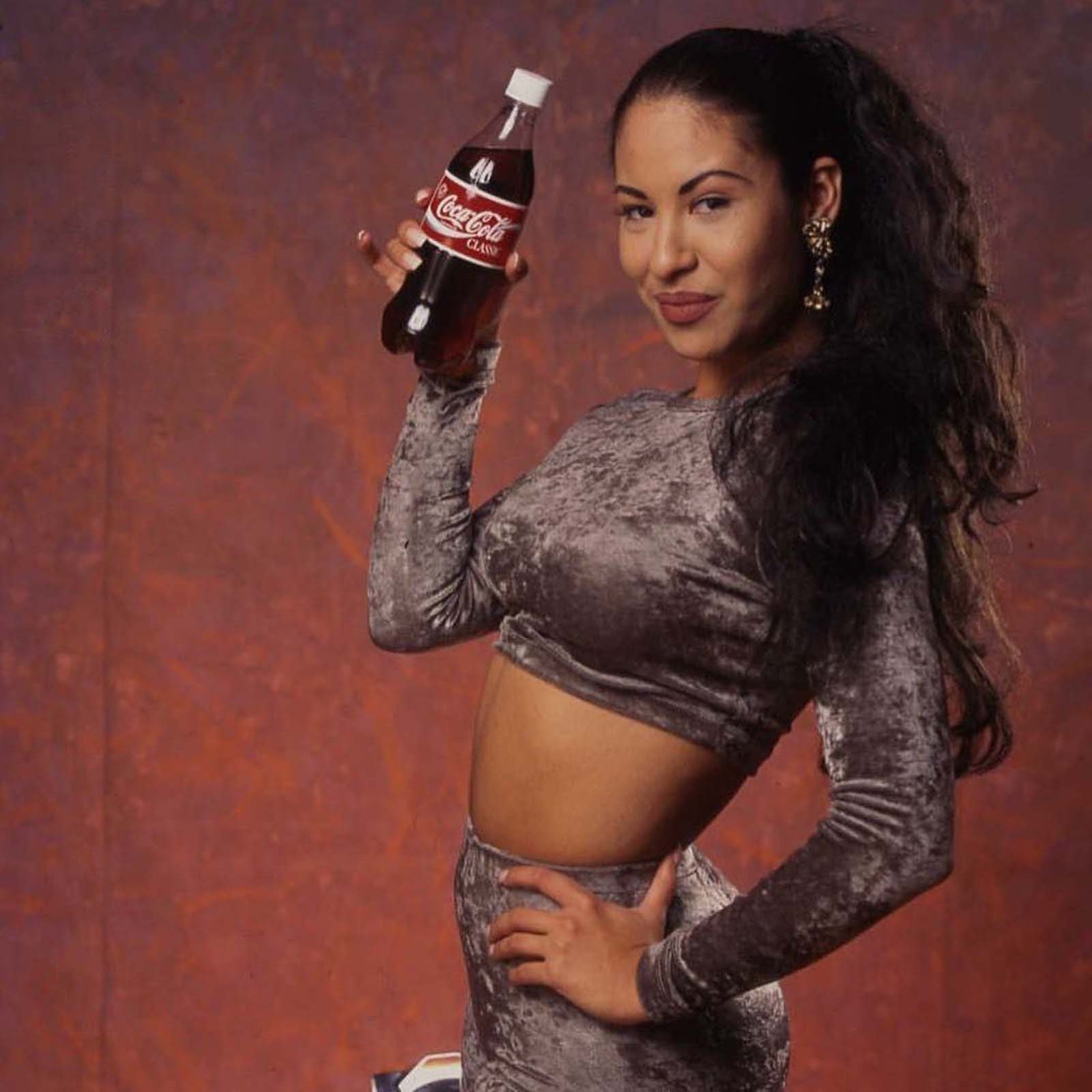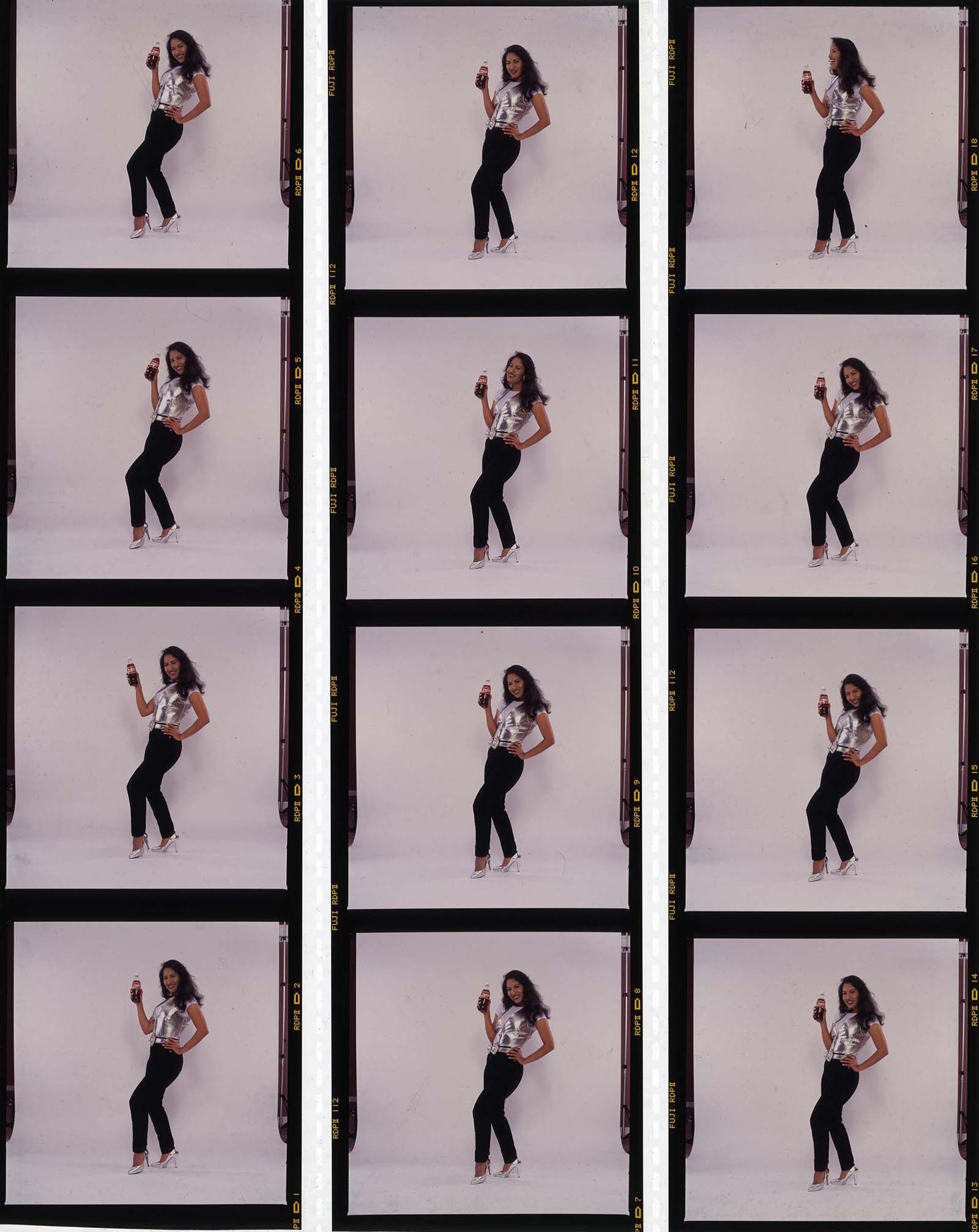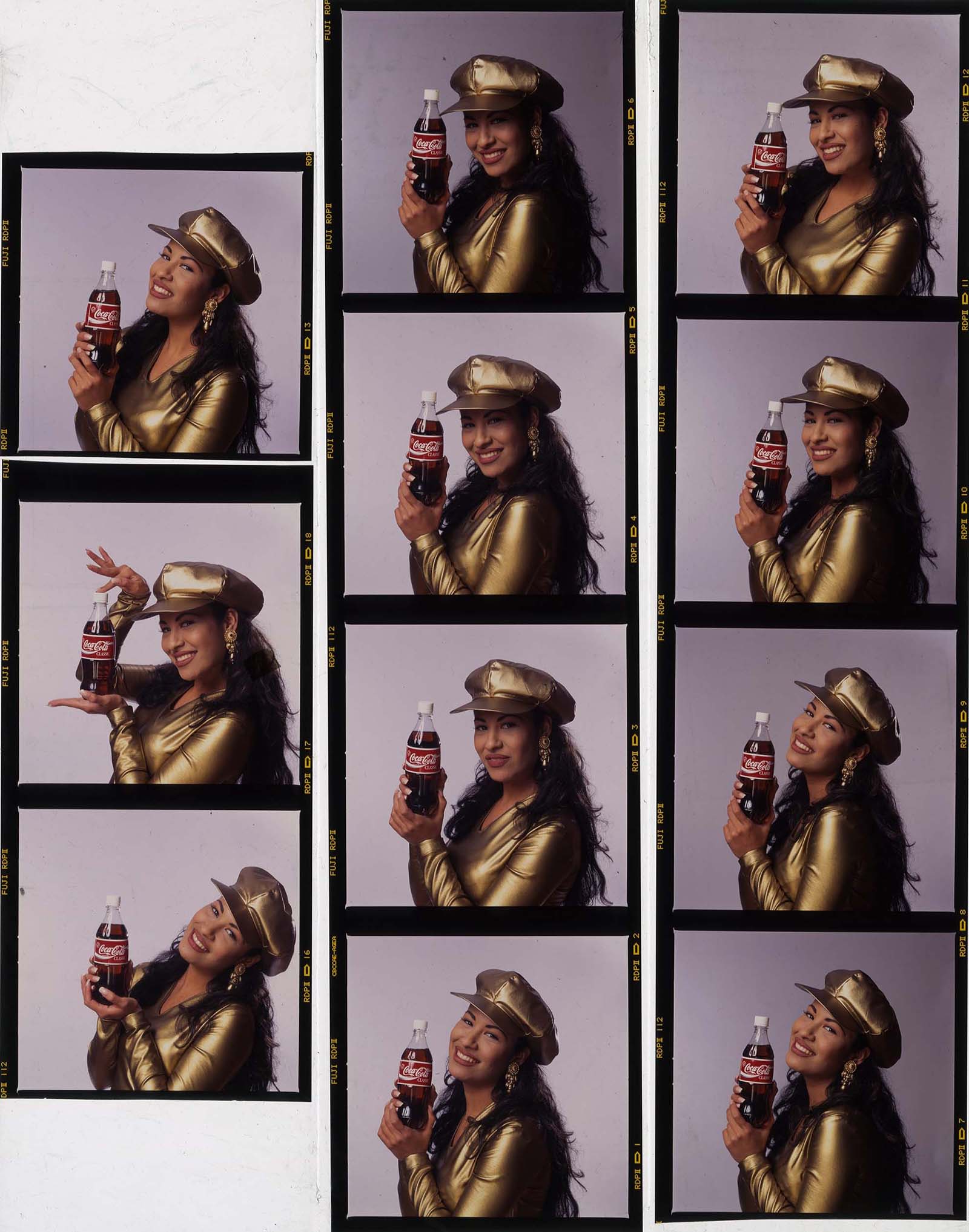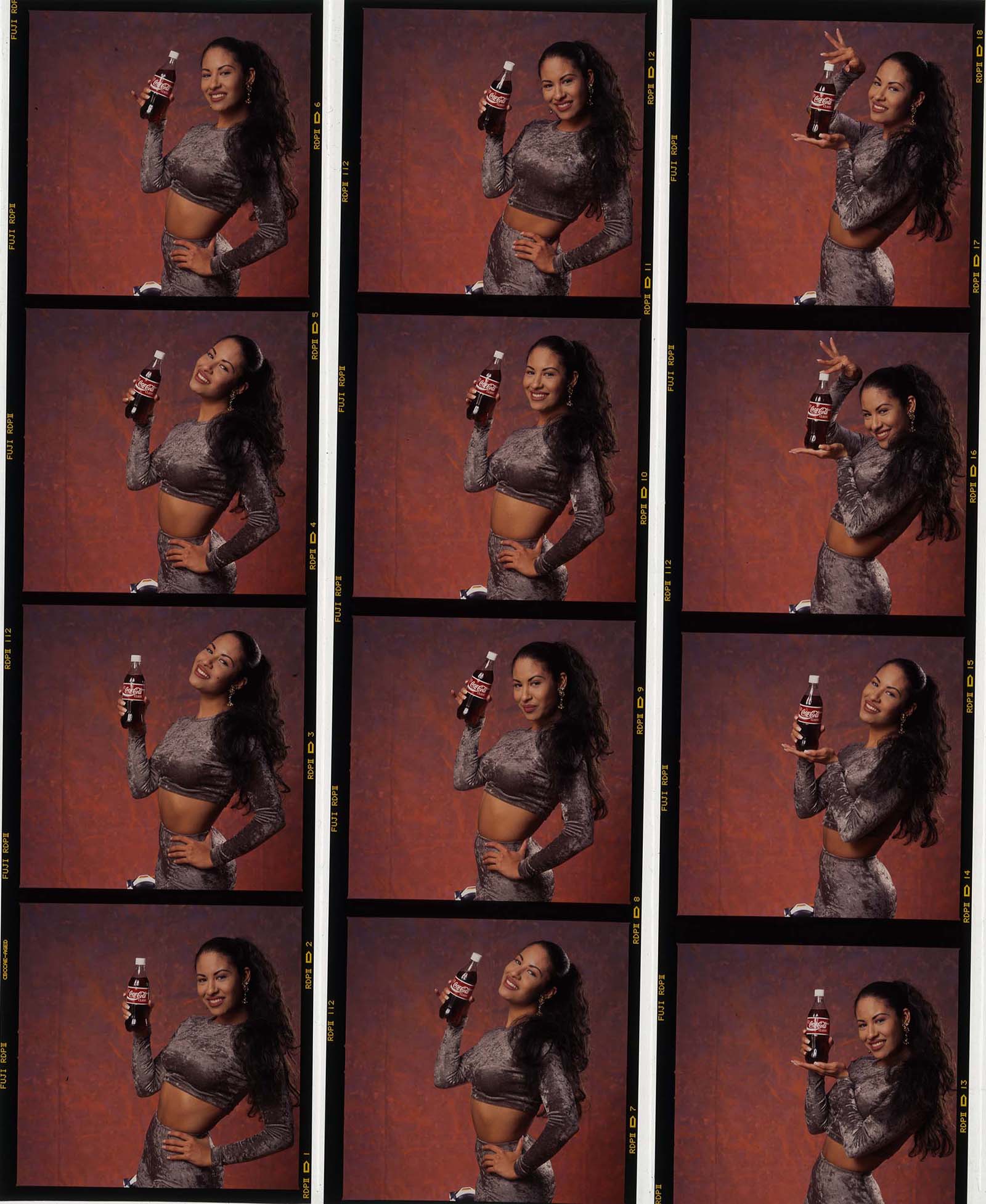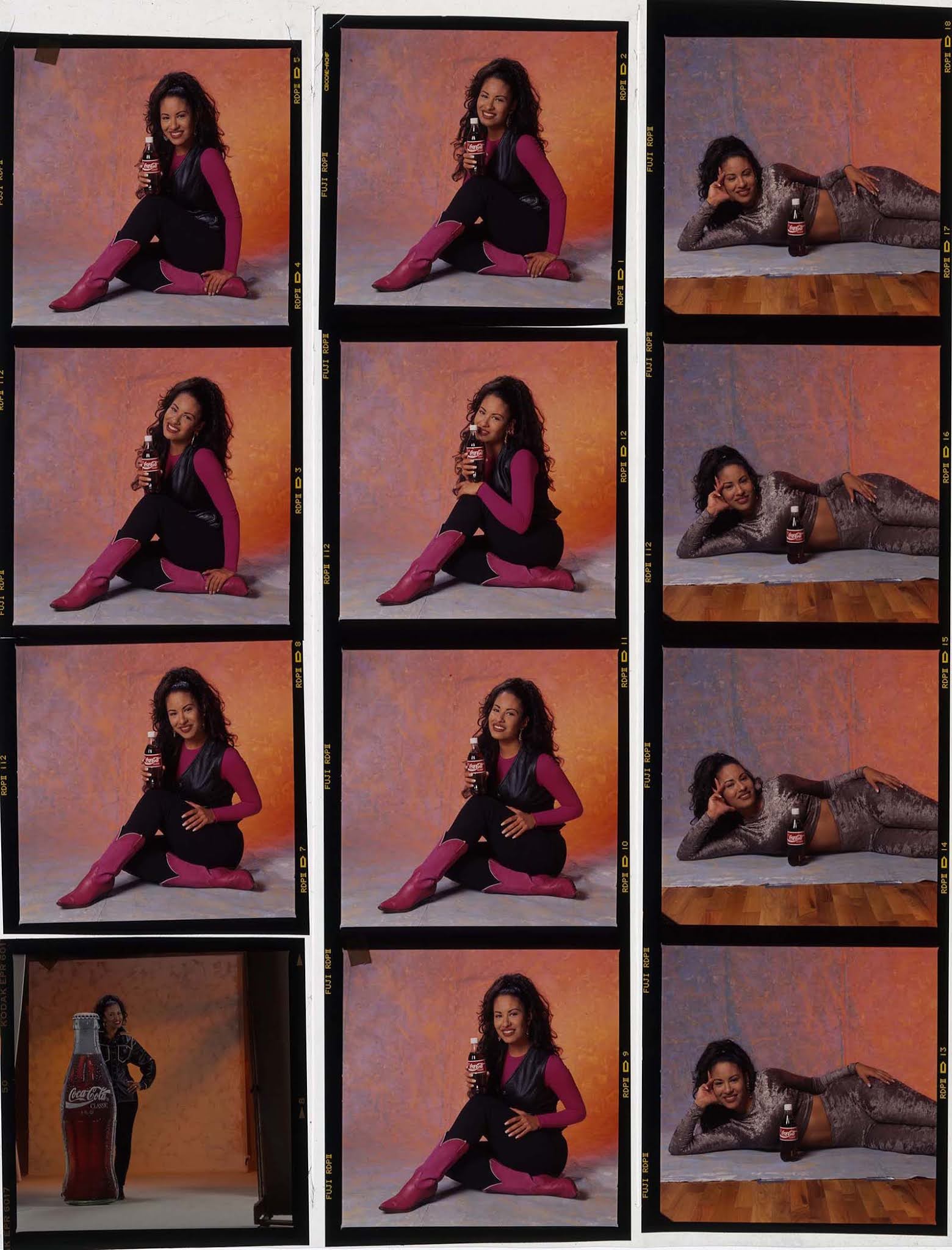An enormously popular singer in Latino communities across North America, her music crossed cultural boundaries to touch the lives of young and old alike. Selena would go on to sign with a major record label and the agency worked with her as a spokesperson for Coca-Cola from 1989 until her death. In the 1970s and 1980s, Latinos in advertising began advocating for the buying power of Latino consumers, leading to a transition in the advertising industry from mass market to targeting specific demographic groups. In that context, not only was Selena the new face of an iconic American brand, but she was proof of the importance of the Hispanic market in this country. The photographs collected here, shot by Al Rendon, capture Selena at the intersection of cultures and styles, marketability, and her true self. The ad campaigns created by the innovative and diverse advertising professionals at Sosa, Bromley, Aguilar & Associates not only reflected the growing influence that Latinos were exerting on the changing face of America but did so in a way that Latino consumers could relate to and embrace. The tragic shooting death of Tejano singer Selena spawned a reaction within the Latino community that can be compared to the reactions to the deaths of Elvis Presley and John Lennon. A flamboyant, sexy stage performer, sometimes hailed as the Latina Madonna, Selena was nonetheless considered a role model for off-stage she was family-oriented, active in anti-drug campaigns and AIDS awareness programs. In 1900, she and backing band Los Dinos released their ebony-mous debut album. Later that year she issued Ven Conmigo; the title track became the first Tejano record to go gold. In 1995, Selena began preparing to make her breakthrough into the American pop mainstream; Dreaming of You, her final album, was released posthumously in 1995. It became the first Tejano album to reach number one in America and was double platinum by the end of the year. Selena was shot and killed on March 31, 1995, 16 days before her 24th birthday, by Yolanda Saldívar, her friend and the former manager of her Selena Etc. boutiques. Saldívar was cornered by police when she attempted to flee, and threatened to kill herself, but was convinced to give herself up and was sentenced to life in prison with possible parole after 30 years. (Photo credit: Al Rendon / National Museum of American History). Notify me of new posts by email.
Δ Subscribe
